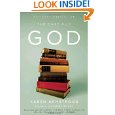
Each day this week, as part of the Church’s #BecauseHeLives Easter initiative, there will be a new question, meme, and/or video that members can share with their friends. Today is Tuesday of the Holy Week and the question that was shared is,
“On Tuesday, during the last week of His mortal life, Jesus Christ answered questions from accusers and disciples alike. What questions can we find answers to today because He lives? Find out at http://mor.mn/2puvc.”
Last year on my personal blog I did a series of blog posts about the last week of the life of the savior. I wrote the following,
“Jesus Christ taught in the temple on this day, about the Last Days, His Second Coming, and the gospel. I have often wondered how Christ must have felt these last days trying to teach as many people and get them to understand. I’m sure it’s similar to how I felt the last weeks of my mission. I just did not have time to mess around and I worked! I have this memory of my companion and I running from blok to blok trying to share the gospel with whoever would listen to us — which was not many people, but we felt pressed to find as many people and try to teach them.”
One of the things the Savior taught this day is found in Matthew 23: 37-38, which reads, “O Jerusalem, Jerusalem, thou that killest the prophets, and stonest them which are sent unto thee, how often would I have gathered thy children together, even as a hen gathereth her chickens under her wings, and ye would not! Behold, your house is left unto you desolate.”
I don’t want to live in a desolate house, or a place without the Lord and the teachings of God. I also have this image in my mind, when I read this passage, of how very much our Heavenly Father and Jesus Christ love us, and want us to follow them. They are waiting right there for us. The question is, will we hearken their call and go? Accepting the invitation of coming unto Christ, is a active choice we make. We choose to follow Him. We choose to take His yoke upon us. We choose to enter into His rest, which is not just sitting around waiting for things to happen, but rather actively participating in the Gospel and actively reaching out to others and inviting them to come with us.
I invite you to find the answers to your questions by following Jesus Christ and learning of Him.
The things Christ taught on this day can be found in the following scriptures:
Matthew 23 & 24
Mark 12 & 13
Luke 20 & 21
John 12




